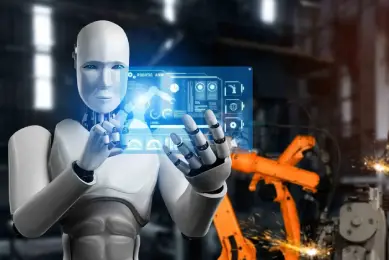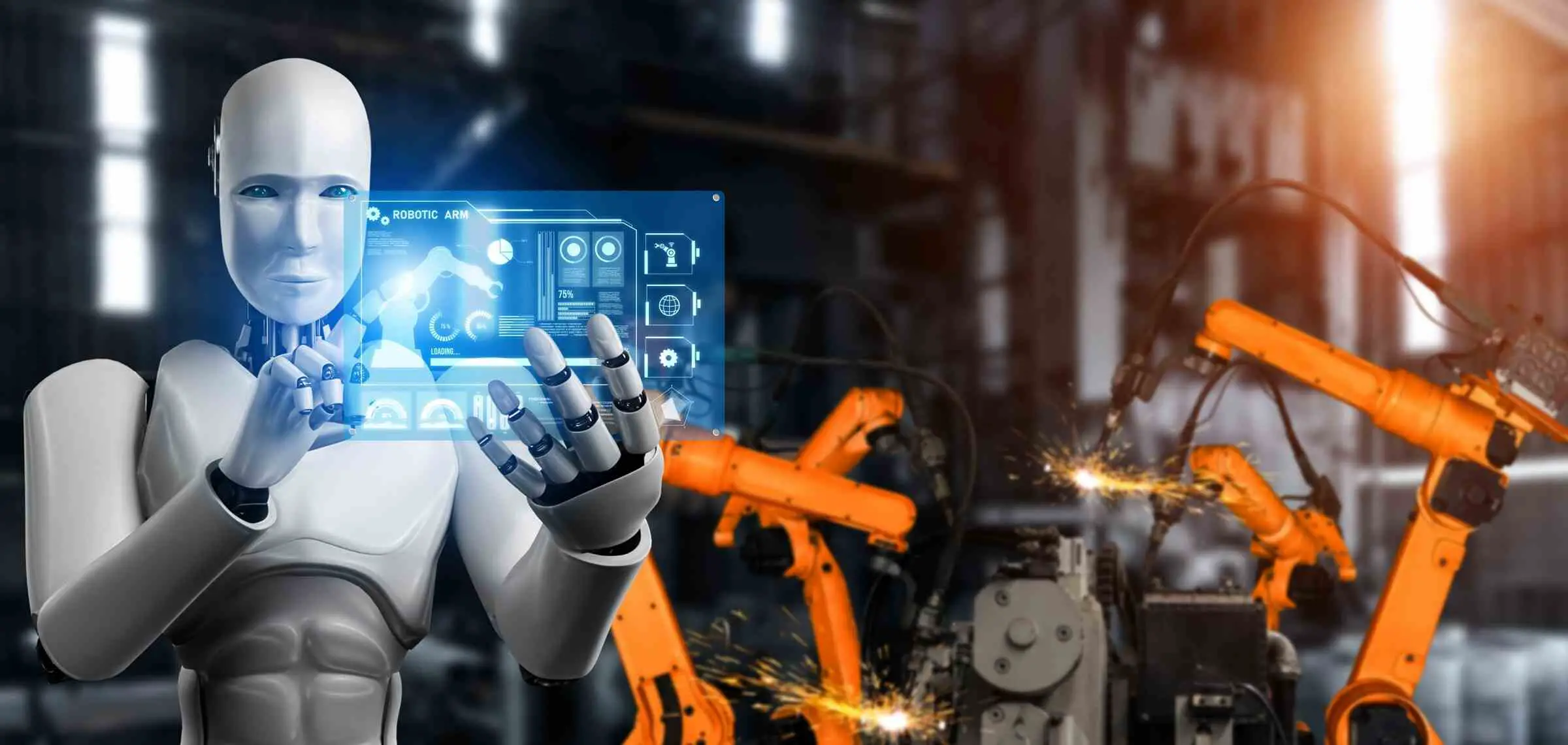Introduction
Technological advancements have rapidly evolved The manufacturing industry in recent years. One of the most significant technological breakthroughs in manufacturing is the integration of Artificial Intelligence (AI) and Machine Learning (ML) with cloud computing. This convergence has led to what is now commonly called “cloud-driven manufacturing.” In this blog, we will explore the crucial role that AI and ML play in this transformative paradigm and how they shape the manufacturing sector’s future.
Understanding Cloud-Driven Manufacturing
Before delving into the role of AI and ML, it is essential to grasp the concept of cloud-driven manufacturing. Cloud-driven manufacturing is a model that leverages cloud computing infrastructure to optimize and streamline various manufacturing processes. It involves the seamless integration of machines, sensors, and other IoT devices, along with data analytics and AI, through the cloud.
Cloud-driven manufacturing offers a range of benefits, including cost-efficiency, scalability, real-time data access, and improved decision-making. By harnessing the power of AI and ML in this framework, manufacturers can achieve unprecedented levels of efficiency, productivity, and competitiveness.
AI and ML in Cloud-driven Manufacturing
1. Predictive Maintenance: AI and ML algorithms can analyze data from sensors and machines in real time, allowing for predictive maintenance. Manufacturers can detect potential machine failures before they occur, reducing downtime and costly repairs. This, in turn, increases overall productivity and cost efficiency.
2. Quality Control: AI-powered image recognition and ML algorithms can be used to monitor product quality during the manufacturing process. These systems can detect defects or deviations from established quality standards and take corrective actions automatically. As a result, manufacturers can significantly reduce defective product output and ensure consistent product quality.
3. Supply Chain Optimization: AI and ML can optimize the entire supply chain. This includes demand forecasting, inventory management, and route optimization. Manufacturers can better manage their resources, reduce waste, and respond swiftly to changes in market demand.
4. Production Process Optimization: AI algorithms can analyze data from various sensors and machines to fine-tune the production process. For instance, they can optimize machine settings, reduce energy consumption, and minimize material waste. This results in higher efficiency and cost savings.
5. Customization and Personalization: AI and ML enable manufacturers to produce highly customized and personalized products at scale. By analyzing customer data, machine learning models can recommend product variations that cater to individual preferences. This fosters customer loyalty and increases market share.
6. Energy Efficiency: Cloud-driven manufacturing with AI and ML can contribute to a greener environment. These technologies can monitor and optimize energy consumption in real time, reducing environmental impact and operational costs.
7. Real-time Data Analytics: Cloud-driven manufacturing provides access to real-time data from multiple sources. AI and ML can use this massive data to identify patterns, anomalies, and trends. Manufacturers can use this information to make informed decisions, improve processes, and stay agile in a fast-paced market.
8. Remote Monitoring and Control: AI and ML enable remote monitoring and control of manufacturing processes. Manufacturers can oversee operations from anywhere globally, making managing global supply chains easier and ensuring consistency in quality and production standards.
Challenges and Considerations
While the integration of AI and ML in cloud-driven manufacturing offers significant advantages, there are challenges and considerations to be aware of:
1. Data Security: The transfer and storage of sensitive manufacturing data in the cloud must be secure. Manufacturers must invest in robust cybersecurity measures to protect their intellectual property and sensitive information.
2. Data Privacy: Compliance with data privacy regulations, such as GDPR, is crucial. Manufacturers must ensure that they collect and process data in a way that respects individual privacy rights.
3. Skill Gaps: Adopting AI and ML technologies may require a shift in the workforce’s skillset. Manufacturers must invest in training and development to ensure their employees can effectively operate and manage these systems.
4. Costs: While cloud-driven manufacturing can lead to long-term cost savings, the initial investment in AI and ML integration can be substantial. Manufacturers should carefully evaluate the return on investment over time.
5. Interoperability: Ensuring all systems and devices can work together seamlessly is challenging. Manufacturers must carefully plan their cloud-driven manufacturing strategy to avoid compatibility issues.
The Future of Manufacturing
Cloud-driven manufacturing powered by AI and ML is transforming the manufacturing landscape. It’s enabling companies to be more agile, efficient, and competitive in a global market. We can expect even more innovation in this space as AI and ML technologies evolve. For instance, integrating AI-driven robotics and autonomous systems will further enhance the automation and efficiency of manufacturing processes.
The ability to harness real-time data, predict maintenance needs, optimize processes, and deliver customized products is driving the future of manufacturing. It’s also making it possible for companies to be more environmentally conscious by reducing energy consumption and waste.
Conclusion
In conclusion, AI and ML are revolutionizing cloud-driven manufacturing by enabling data-driven decision-making, automation, and efficiency. As these technologies advance, manufacturers who embrace them will likely find themselves with a competitive edge in a rapidly changing industrial landscape. The future of manufacturing is here, and it’s being driven by the power of AI and the cloud.


